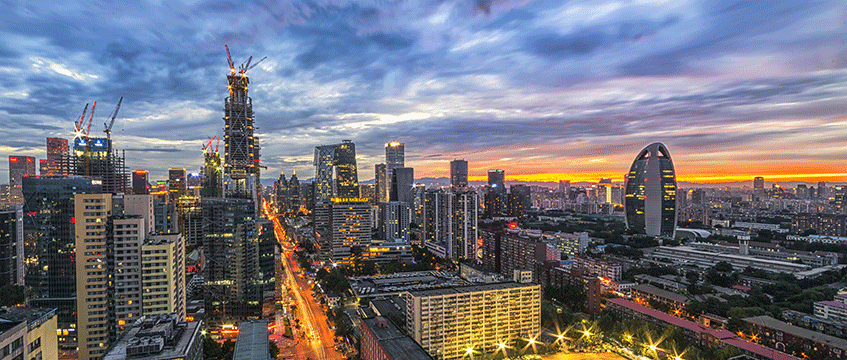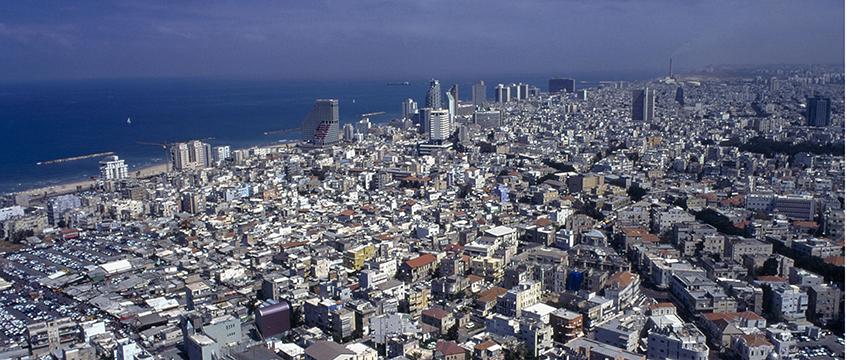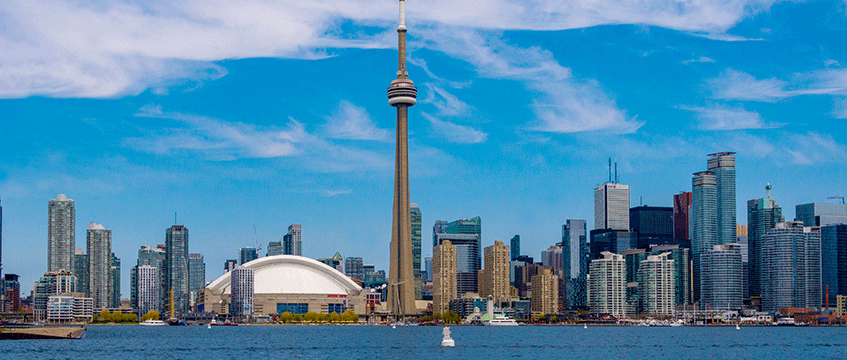For decades, San Francisco and the Bay area have been synonyms for Silicon Valley. New York is turning into a serious rival with Amazon, Apple, Facebook and Google settling down there, while Boston is attracting tech talent from across the globe. Now other cities are getting in on the action.
According to a study by the Economist’s Intelligence Unit, Paris, Tel Aviv, Beijing, Toronto and Los Angeles are poised to become the tech powerhouses of the future, reports Sifted. These cities, identified in the Uncovering tomorrow’s innovation hotspots study, are the most likely to displace current tech hubs such as San Francisco.
Meanwhile, Silicon Valley’s share of funding in California – while still a whopping $15.8bn (£12.03bn) – is shrinking. The perfect opportunity for another city around the world to swoop in and take the stage?
Here are some more details from the study ranking the five cities, provided by Sifted:
- Beijing ranks top on nearly all the measures, which included progress on AI, energy storage, advanced manufacturing, and robotics.
- The inclusion of Paris in the top 5 was a recognition of how far the city has come in the past few years amid a concerted effort by the government and private sector to stimulate the ecosystem.
- The study looked at innovation across 10 tech sectors, ranging from AI to AR, but the inclusion of Paris is timely, following president Emmanuel Macron’s recent €2bn investment into French late-stage VC funds. According to Dealroom data, Paris scored particularly highly in AI, energy storage, advanced manufacturing, and robotics.
While all this sounds plausible, becoming a known tech hub entails more than high scores in tech-related fields. These numbers will only be proven correct once multiple factors start aligning perfectly, including the right framework from the government, powerful tech players, investors, and talent. Four experts took the time to analyse all five cities’ chances to kick Silicon Valley off the curb (or at least become a really strong competitor for hot new talent and investor money).
Paris – There’s a long way to go

Shutterstock
While Paris is evolving quickly right now, it also started from a very low level, notes Zach Aarons, partner at MetaProp. Dror Poleg, author of Rethinking Real Estate and the co-chair of the Urban Land Institute’s Technology and Innovation Council in New York, explains further: “Paris has the fundamentals required to become a powerhouse in the middle of the huge European market: It has great universities, large financial players, a big market in France and nearby countries, and diversity of creative industries that can support new ventures.
“To fulfil its potential, Paris needs to have a larger presence of large tech companies that can support (and acquire) smaller companies, it needs to increase the presence of venture capital investors, and it needs to think more towards the world — developing products that focus on English and Chinese-speaking markets, and not just on domestic ones.”
And this larger presence of capital investors is crucial, according to Andrew Ackerman, managing director at Dreamit Urbantech. Currently, the government is largely supporting the start-ups in Paris with funds, which, unfortunately, doesn’t mean much to investors, said Ackerman. “Government-supported start-ups end up with inflated valuations,” he explained.
Beijing – Can it become a global player?

Imagine China/Shutterstock
“Beijing is well ahead of the other cities on this list and is already second only to Silicon Valley in the amount of venture capital it attracts,” says Poleg.
Zak Schwarzman, another MetaProp partner, disagrees with him and sees Beijing on a domestic scale: “Beijing is probably just all things China-facing as it has its whole own internet and app ecosystem.”
Ackerman also notes the difficult political climate. For start-ups to thrive, he said they need to be in “stable places with rules of law that are fun, clean and liberal.”
Los Angeles – Benefiting from tech institutions

Patrick Fallon/ZUMA Wire/Shutterstock
Zach Aarons’ take on the second-biggest metropolis in the US revolves around its tech institutions: “Los Angeles has always had tech because of CalTech and Aerospace, they are well-positioned because of that and the media industry.”
Ackerman thinks LA is too close to tech giant San Francisco, which “sucks the oxygen out of the room for LA.” One opportunity here is to build tech start-ups around the already-thriving Hollywood industry, but California’s most populous city isn’t embracing that at the moment, he further noted.
Toronto – Things are starting to come together here
Roberto Machado Noa/Shutterstock
Toronto checks a lot of the boxes, Ackerman thinks. The political framework is “fun, clean, and liberal,” he says.
According to Poleg: “Toronto has great engineers and creative professionals and benefits from proximity to the US, and it is becoming an attractive destination for entrepreneurs thanks to positive legislative changes in Canada.”
Aarons agrees: “The Canadian government is very friendly to start-ups in terms of incentives.” In addition, the MetaProp partner mentioned one other factor that poises Toronto as a tech powerhouse. Research in Motion (now Blackberry) employed world-class engineers before it imploded, “leaving a lot of tech talent to pursue new start-ups.”
Tel Aviv – Already a few steps ahead

Andrew Ackerman believes in Tel Aviv. “I would rank Tel Aviv as the most likely city to turn into a tech powerhouse. The city’s advantage is its early enough beginning – it started attracting funds to Israel back in 1994.
“Tel Aviv features not only homegrown funds but also lured in New York and Silicon Valley-based start-ups. In addition, there is enough capital there to pass that hurdle of accessing the global market.”
Ackerman also emphasised the city’s vibrant culture as another plus.
Dror Poleg also sees big potential in the Israeli capital: “Tel Aviv is already one of the three or four most important cities in the world as far as technology is concerned.”
What makes Tel Aviv special as a tech hub is that “there’s a concentration on cybersecurity, core tech and autonomous vehicles coming out of the Mobileye diaspora,” said Schwarzman.
Time will tell
With a melting pot of factors influencing how a city truly transforms into a tech hub, it is nearly impossible to predict which metropolis is on track to do so.
However, the above cities should be on an investor’s list when looking for promising new start-ups to support and certainly provide some awesome opportunities for tech companies and tech talent alike.
Only time will tell if Paris, Tel Aviv, Beijing, Los Angeles, Toronto or an entirely different city have what it takes to become big players in the tech game.












